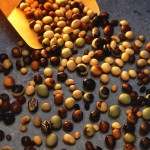We all know that excess waste generation is bad for the environment but as individuals what can we do to try to reduce the environmental impact of our daily activities? The best option is to try to prevent waste arising where possible.
Most of us create waste unnecessarily — for example we discard approximately 30% of the food we buy — at least a portion of every 2 lettuces purchased in the home is disposed of and other common food items disposed of regularly include pasta, rice, bread, fruit and vegetables. Every kilo of food waste disposed off has a monetary value of between €2–€3!
Waste prevention can be defined as any action that limits environmental damage. Preventing waste at source is the best option because if you don’t create waste, then you don’t need to dispose of it! Put simply, it’s stopping waste before it starts!
We each use items in the home that could be substituted with reusable options, for example using airtight containers instead of tinfoil or cling film!
Food waste is a huge problem in that tonnes of food waste are disposed of in Ireland every year — all that food prior to disposal, has to be brought home from the shops, refrigerated and in some cases cooked. Food related activities such as refrigeration, cooking and cleaning can account for up to half of the average household energy use.
So what can we do to help protect our environment?
- Plan to buy what you need and beware of special offers that go unused
- Freeze food to prolong its life
- Buy loose fruit and vegetables
- Watch your air miles — buy local food as much as possible
- Plan your menus to use in-season local produce
- Be creative with leftovers
- Use reusable containers
- Remember your reusable shopping bag
- Buy quality products that can be upgraded to extend their useful life
- Be aware of packaging — remember you’ll have to pay to get rid of it
- Think about how you can reduce your impact on the environment
- Use your nearest bring bank and recycling centre regularly
- Don’t burn waste without authorisation
- Conserve energy and water where possible
- If you don’t do it already, get composting — up to 35% of household waste can be composted!
Why Prevent Waste?
- Less waste going to landfill means fewer trucks on the road, fewer landfills and less energy used
- Less waste means we can conserve valuable resources like trees, oil, metals, water and energy
- If we use less, it should cost us less
Get Composting at Home
Many people consider doing some home composting but are very often deterred because of fears about vermin, smells or flies. However by following some simple guidelines such as having the correct location, the correct balance of material and mixing regularly these problems can be overcome and composting can be a successful and enjoyable experience.
Organic wastes such as materials from the kitchen and garden have a common trait that distinguishes them from other household wastes in that they decompose quickly — items such as tea bags, fruit, vegetable peelings and garden waste. Small amounts of cardboard and newspaper can also be used in the composting process.
When this material is separated from other household waste and allowed to decompose in the presence of air, it is converted into a crumbly soil-like material called compost. The composting process involves millions of tiny creatures, most of which are too small to be seen by the naked eye. These creatures include bacteria, insects, fungi, and worms. This decomposition and subsequent return to the soil is an entirely natural process that results in wonderful compost that can be used in the garden.
Galway County Council runs Composting and Waste Management Workshops throughout the year. To arrange a workshop or get details of one in your area, please contact us on the details below. Compost bins are available from the Environment Section, Galway County Council at a cost of €45.
Further information is available from Sinéad Ní Mhainnín/Mark Molloy, Environment Section, Galway County Council 091 476 402 or [email protected]




